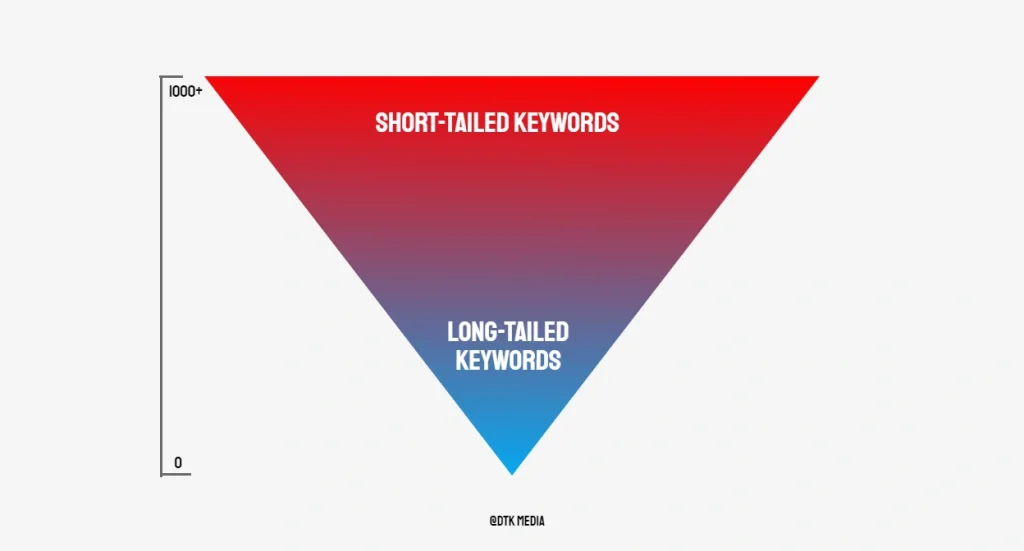Let’s face it, backlinks can be a beast to build. Failed outreaches, ignored DMs, link buying and many schemes just to get that link.
Backlinks can be a total game changer. One quality link from an authoritative site can work wonders for your site.
However, because of their value, they are one of the most manipulated SEO ranking factors. Link buying, PBNs and bot spamming are some of the shady ways people use to build backlinks.
Personally and honestly, I have had no success building links since I started SEO. I tried a few outreaches and it didn’t work out.
If you’re a person who doesn’t like building backlinks then this article is for you because I’m going to show you how to get decent and targeted traffic to your website without backlinks.
Research

Everyone wants to get to the top for big, short-term keywords but it can be a challenge. Short-term keywords are words like shoes, construction, laptop, phone etc.
These keywords will be occupied by big websites like Wikipedia, Amazon, Tech crunch etc.
So what are you gonna do?
Instead of targeting loose, broad keywords in the red area try to be as specific as possible and target keywords in the blue region. Search pages still contain several specific unanswered questions.
Specific keywords are termed long-tailed keywords because they are narrowed. They may have low search volumes but they will be easy to rank for and get targeted traffic.
This search query from one of my website shows how people can be deep when searching

How to Find Long-tailed Keywords
In the SERPs
When you search for something on Google/Bing look in the “People Also Ask* section. In there you’ll discover some long-tailed questions that people are asking. Try creating content answering those questions.
Get In Forums
When people fail to find answers on Google they tend to ask in forums. If you search something and notice several user-generated websites like Quora and Reddit it’s a sign that the question is specific.
Websites like Quora usually show up for long-tailed specific queries. Try to answer these questions in articles and blog posts.
Use Keyword Research Tools
Tools like Ahrefs, Semrush and Ubbersuggest offer keyword research capabilities. You can filter to show question-related queries. Look for keywords with a low difficulty score and decent search volume and create content around those.
Social Media
Like forums, get into social media groups observe what people are asking and create content answering those questions.
Analyse what people are searching on your website
If you have a couple of people on your site put a search input and record their input to a file on your server. Notice their search inputs and discover long-tailed keywords that you can write content on.

Create a Forum on Your Website
User-generated content is specific and narrowed. Forums create long-tailed keywords automatically and rank for themselves. When people fail to find answers on Google they ask in forums and groups for answers.
Advantages of Long-Tailed Keywords
Long-tailed keywords are specific and usually attracts potential visitors. By potential I mean people who are likely to convert and become a regular visitor or customer. You may say I want more traffic by targeting broad keywords but only a few visitors convert or do what you want them to do, e.g. buying, signing up etc.
Which is better a website having 100 visitors and 5 people doing an action or 10 visitors with 5 people doing an action?
So high traffic numbers don’t necessarily mean high conversion rates.
Case Study
One of my websites, The Geo Room, managed to rank without backlinks. It’s an educational website and gets an average of 6000 visitors per month. I just focused on creating content. After 4 months one article stated to get traffic, about 4 – 6 per day. The article answered a long-tailed search query. Other long-tailed keyword articles also started getting traffic and the site grew from there.
As the website attracted backlinks from other websites naturally the domain authority also increased.
